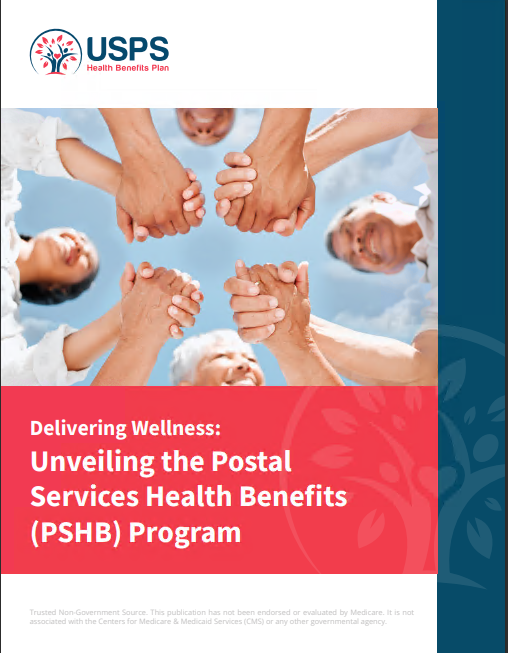Understanding Formularies in Medicare
Navigating the intricacies of Medicare can be overwhelming, especially when it comes to understanding formularies. As a USPS professional or retiree, it’s crucial to grasp the concept of formularies and how they impact your prescription drug coverage. In this guide, we’ll delve into the details of Medicare formularies, including what they are, how they work, and what you need to know to make informed decisions about your healthcare coverage.
What is a Formulary?
A formulary is a list of prescription drugs covered by a specific health insurance plan, such as Medicare Part D. These lists are developed by insurance companies in collaboration with healthcare professionals and pharmacists to ensure the safe and effective use of medications while managing costs. Medicare formularies categorize drugs into different tiers, each with its own cost-sharing requirements.
Understanding Formulary Tiers
Medicare Part D plans typically organize covered drugs into tiers based on their cost and preferred status. Here’s a breakdown of common formulary tiers:
- Tier 1 – Preferred Generic Drugs: This tier includes lower-cost generic medications that offer the most affordable copayments or coinsurance. Preferred generics are often the first line of treatment for many medical conditions due to their cost-effectiveness.
- Tier 2 – Non-Preferred Generic Drugs: Non-preferred generic drugs may have slightly higher cost-sharing requirements than preferred generics but are still more affordable than brand-name drugs. These medications may be considered alternatives if preferred generics are ineffective or unavailable.
- Tier 3 – Preferred Brand-Name Drugs: Preferred brand-name drugs are medications with higher costs than generics but are preferred by the insurance plan due to their efficacy or cost-effectiveness. While these drugs may offer therapeutic benefits, they often come with higher out-of-pocket costs for beneficiaries.
- Tier 4 – Non-Preferred Brand-Name Drugs: Non-preferred brand-name drugs typically have higher copayments or coinsurance than preferred brands and may require prior authorization. These medications may be prescribed when preferred alternatives are not suitable or effective for the individual’s medical condition.
- Tier 5 – Specialty Medications: Specialty drugs are often used to treat complex or rare medical conditions and tend to have the highest out-of-pocket costs. These medications may require special handling, administration, or monitoring, making them more expensive than other drugs on the formulary.
Key Considerations When Using Formularies
Understanding your Part D plan’s formulary is essential for maximizing your prescription drug coverage while managing costs. Here are some important considerations:
- Drug Coverage: Review the formulary to ensure that your prescribed medications are covered by your Part D plan. Pay attention to any restrictions, such as prior authorization or step therapy requirements, which may affect your access to certain drugs.
- Cost-Sharing: Understand the cost-sharing requirements for drugs in each formulary tier, including copayments, coinsurance, and deductibles. Consider how these costs will impact your budget and healthcare expenses when choosing medications.
- Preferred vs. Non-Preferred Drugs: Preferred drugs typically have lower out-of-pocket costs than non-preferred drugs. Whenever possible, choose preferred medications to minimize your prescription drug expenses and maximize your coverage benefits.
- Coverage Changes: Formularies can change from year to year, with drugs being added or removed based on factors such as cost, safety, and efficacy. Stay informed about any changes to your Part D plan’s formulary to avoid unexpected costs or coverage gaps.
Final Thoughts
Understanding Medicare formularies is essential for maximizing your prescription drug coverage and managing your healthcare expenses effectively. By familiarizing yourself with formulary tiers, coverage rules, and cost-sharing requirements, you can make informed decisions about your medication choices and ensure access to the drugs you need at an affordable cost.
For personalized assistance with understanding your Part D plan’s formulary or exploring your prescription drug coverage options, consider connecting with a Licensed Insurance Agent specializing in Medicare. These knowledgeable professionals can provide guidance and support to help you navigate the complexities of Medicare formularies and find a plan that meets your unique healthcare needs and preferences.
For more information on Medicare formularies and prescription drug coverage
download our comprehensive eBook or connect with a Licensed Insurance Agent today. Make informed decisions about your healthcare coverage and ensure access to the medications you need.
Are you a Licensed Agent? CLICK HERE to apply for a directory listing
Featured Articles
Leave Your Feedback






